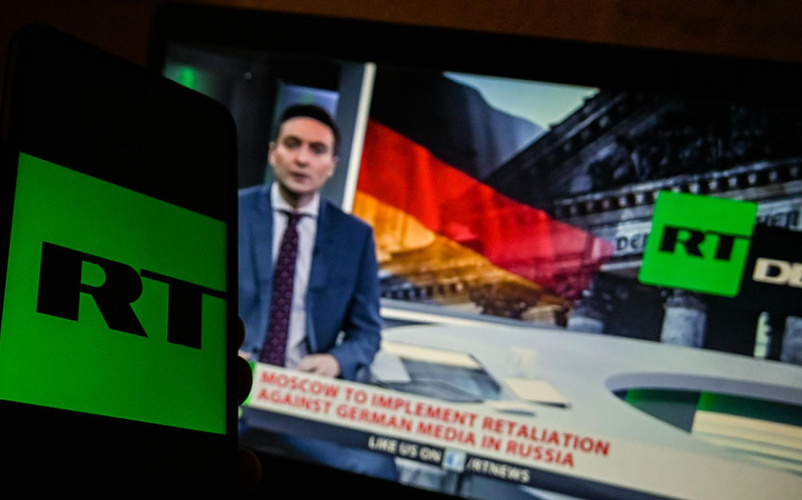Image: Hans Lucas/Adrien Fillon (DPA)
Friday’s Coverage: UN Knocks Back Russian Claims Over Crash of Transport Warplane

Map: Institute for the Study of War
UPDATE 1332 GMT:
Hosting his Lithuanian counterpart Gabrielius Landsbergis, Ukraine Foreign Minister Dmytro Kuleba says Kyiv and Vilnius have agreed on joint production of drones.
We devoted a large part of our conversation to defining joint steps to increase the production of drones for the Ukrainian Armed Forces. Lithuania has the technology, and we can scale up production….
There is a clear understanding of what, how and when to do, so that Ukrainian-Lithuanian cooperation in drone production could give the maximum result in the shortest time.
Kuleba said that he and Landsbergis also discussed Ukraine’s accession to the European Union and to NATO.
Welcome to Kyiv, dear friend @GLandsbergis.
Whatever it takes to achieve victory and defend peace and freedom in Europe, we will do it together.
Ukraine's security is Lithuania's security, and our shared future is in the EU and NATO. pic.twitter.com/z56mUuav9Q
— Dmytro Kuleba (@DmytroKuleba) January 27, 2024
UPDATE 1325 GMT:
Russian troops have killed a brother and sister in the village of Andriivka in the Sumy region in northern Ukraine.
Andriivka is in the 5-km (3.1-mile) border zone.
Volodymyr Artyukh, head of the Sumy regional military administration, said:
I once again appeal to the residents of the 5-km zone with a request for evacuation. This process has been going on for more than a month. Help is provided at every stage.
Russian terrorists continue to kill civilians. By evacuating from dangerous areas, you will save your life.
A Russian drone attack killed a man and injured another person in Beryslav in the Kherson region in southern Ukraine.
ORIGINAL ENTRY: Spiegel documents Russia’s disinformation campaign in Germany through Elon Musk’s X.
Last September, the Russian activists succeeded with a viral falsehood. A fictional message from German Foreign Minister Annalena Baerbock, “The war in Ukraine will be over in three months” — not because of Kyiv’s victory, but because of a withdrawal of Berlin’s support.
Russian-created accounts circulated the tweet with comments such as “This is the news! @ABaerbock didn’t give Ukraine a chance”. Retweets used hashtags popular in September such as #Oktoberfest, #Dirndl, or those for Bundesliga football matches.
But there was a giveaway message in the original tweet from “Baerbock”. At the bottom of the entry was a Cyrillic symbol.
A confidential analysis by the German Foreign Ministry summarizes evaluation of output on X from December 20 to January 20. During the month, more than 50,000 fake user accounts were identified, putting out more than one million German-language tweets. On some days, 200,000 messages were registered.
Themes include the assertion that leaders are neglecting the population: “I find it disappointing that the government is doing more for other countries than for its own citizens” and “It’s a shame that the traffic-light coalition is not tackling the problems in its own country first”.
The German experts conclude that this is the latest phase of the Russian campaign “Doppelgänger”, first identified in 2022. Germany, France, the UK, Italy, and Ukraine were targeted in what Meta called the “largest and most persistent” Russian online operation to date.
In Germany, the disinformation complemented a Kremlin initiative to build up a bloc of activists — linking the far right and the left — to oppose support for Ukraine against Vladimir Putin’s invasion.
See also Kremlin Plot: A “Germany Front” Breaking Support For Ukraine
Last summer, the EU sanctioned Russian IT service companies Structura National Technologies and Social Design Agency over their involvement. The firms are also believed to be responsible for a Russian disinformation campaign in Latin America.
The Foreign Ministry has shared its findings with the European Union’s competence center EU vs Disinfo and with the German interdepartmental working group “AG Hybrid”, established just after Putin’s invasion of Ukraine to investigate Moscow’s covert warfare.
Trouble for Elon Musk?
The investigation could cause difficulties for Elon Musk, with the entrepreneur dismantling systems that tried to block disinformation and hateful content.
Lea Frühwirth from the Center for Monitoring, Analysis and Strategy, explains:
Elon Musk’s actions repeatedly show that platform integrity is not a priority for him….
Russian influence campaigns such as Doppelgänger aim to weaken liberal societies. They sow distrust of democratic institutions, disparage quality media and thus disrupt the formation of informed political opinion.
X could be the subject of the EU law on digital services that came into force in November. Last month, Internal Market Commissioner Thierry Breton initiated proceedings against the service over false or misleading information about Hamas’s October 7 mass killings in Israel.
In response to a SPIEGEL inquiry about the revelations over the Russian campaign, X sent an automated e-mail, “We are busy, please try again later.”

